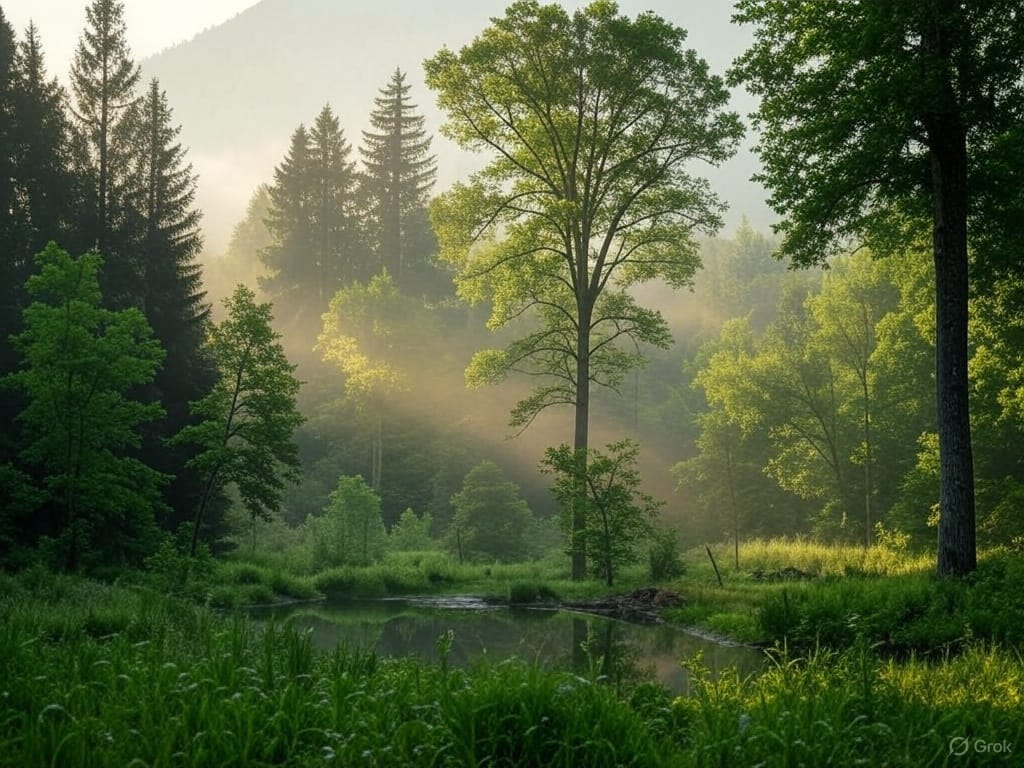Forests as Earth’s Lungs
Forests, the Earth’s lungs, tirelessly filter our air and store carbon, yet deforestation threatens to unravel their vital role in sustaining life.

Did you know a single tree can produce enough oxygen to sustain two people for a year? Forests, often called the "lungs of the Earth," are more than scenic landscapes or wildlife havens—they’re vital systems that purify air, store carbon, and nurture communities worldwide. Yet, deforestation is choking these essential ecosystems, with consequences that ripple from local villages to global weather patterns. In this article, we’ll uncover the science behind forests’ life-giving roles, explore the devastating effects of losing them, and share practical ways you can help keep Earth’s lungs breathing strong.
Forests as Nature’s Air Purifiers
Step into a forest, and the air feels crisp and alive. This isn’t just your imagination—trees are nature’s air purifiers. Through photosynthesis, they absorb carbon dioxide (CO₂) and release oxygen (O₂), with a single mature tree generating enough oxygen to support two people annually. Forests like the Congo Basin act as oxygen factories, sustaining life far beyond their borders.
But trees do more than produce oxygen. Their leaves and bark trap airborne pollutants—dust, soot, and harmful gases like nitrogen oxides. In cities near woodlands, such as Eugene, Oregon, close to the Willamette National Forest, air quality is measurably better, with 20% less particulate matter, reducing asthma rates and boosting public health. Forests don’t just give us air to breathe—they refine it, making every breath cleaner and healthier.
Carbon Storage
Forests are also guardians of atmospheric balance. As trees grow, they absorb CO₂ and store it in their trunks, branches, and roots—a process called carbon sequestration. Picture forests as giant sponges, soaking up billions of tons of carbon that would otherwise disrupt ecosystems. Tropical rainforests, like the Amazon, are powerhouses, storing up to 200 metric tons of carbon per hectare.
The soil beneath is just as crucial. Rich with organic matter, forest floors lock carbon underground for decades, even centuries. When undisturbed, these ecosystems maintain stability, ensuring the planet’s natural cycles run smoothly. But this balance hinges on forests’ survival—a balance deforestation threatens to unravel.
Deforestation
When forests are cut down or burned, their life-giving roles collapse. Deforestation releases stored carbon as CO₂, disrupting atmospheric balance. According to the World Resources Institute, deforestation accounts for 10-15% of global greenhouse gas emissions—more than all cars, planes, and trains combined. On the ground, the impacts are immediate. In Brazil, farmer João watched his crops fail as deforested land eroded, clogging rivers with sediment.
The losses pile up: air quality worsens as pollutants go unchecked, oxygen production drops, and communities lose vital resources. In places like Indonesia, where forests are cleared for palm oil, haze-filled skies and displaced wildlife are stark reminders of what’s at stake. Globally, fewer trees mean less transpiration—the release of water vapor—leading to drier conditions and erratic weather. Deforestation doesn’t just scar the land; it destabilizes the systems that keep Earth thriving.
Forests and Our Lives
Beyond their ecological roles, forests shape human existence. For millions, they provide timber, fuel, medicine, and food—resources that sustain both survival and culture. The Yanomami people in the Amazon, for example, rely on forests for plant-based remedies, their knowledge passed down through generations. These ecosystems are not just resources but cultural cornerstones.
Even in urban settings, forests work magic. A 2023 study found that 30 minutes in a forest lowers stress hormones by 15%, boosting mental health and happiness. Cities like Vancouver, with accessible woodlands, see measurable improvements in public well-being. Forests remind us that our health and heritage are tied to the planet’s vitality—a bond fraying as deforestation spreads.
A Future for Healthy Forests
Forests are the heartbeat of our planet, purifying air, stabilizing ecosystems, and enriching lives. But like any vital organ, they need care to thrive. Deforestation may threaten their breath, but we can heal them—tree by tree, choice by choice. Imagine a world where forests hum with life, their air crisp and soils rich, sustaining generations to come.





